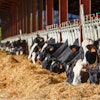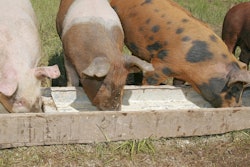
In January, Italy confirmed the first case of African swine fever (ASF) in the province of Parma, which is in the region of Emilia-Romagna.
Affected was a wild boar found dead in a forest, bringing to 13 the number of Italian provinces with confirmed cases of ASF in domestic pigs and/or wild boar over the past two years.
Just a few weeks ago, ASF was detected for the first time in Asti — a province in the Piedmont (Piemonte) region.
According to the regional veterinary authority IZSPLV, 1,466 cases of ASF have occurred in the Italian wild boar population since January 2022 (as of January 31). This is an increase of 51 from the situation on January 19, with new cases in six other provinces in addition to Parma.
There has been no recent change in the number of ASF outbreaks in the country’s domestic pigs. The total remains at 21, contained in four provinces in different regions of the country.
5 European states record ASF in swine
As of January 27, five countries have reported ASF outbreaks in domestic pigs so far in 2024 to the European Commission (EC). Its Animal Disease Information System monitors the progression of notifiable animal diseases in member states of the European Union (EU) and most of the adjacent countries.
Of the total of 26 outbreaks in this category for the year to date, Romania has recorded 11, Serbia (nine), Ukraine (three) and Bosnia-Herzegovina (two). As well as the first cases of the year in the latter state, each of the other countries has registered new cases since the previous EC update dated January 14.
Official notifications by the national veterinary agencies to the World Organisation for Animal Health (WOAH) reveal that one of the latest outbreaks in Romania involved a farm. Affected was a premises with more than 20,300 pigs in the eastern county of Vrancea. Furthermore, in an amendment to an outbreak starting in November, a further 43,000 animals were added to the total affected at a farm in the southeast of Romania. The other six Romania outbreaks recently reported to WOAH involved small backyard herds.
Two further outbreaks have been confirmed by the Ukrainian animal health agency. These involved one non-commercial herd in each of the eastern provinces of Donetsk and Kharkiv.
Meanwhile, North Macedonia has reported its largest outbreak to date, based on WOAH notifications. Testing positive for the ASF virus at the end of December was a farm herd of 635 pigs in the northeast of the country.
In the Semberija region in the northeast of Bosnia-Herzegovina, pig farmers affected by ASF have been protesting about the delays and inadequate amounts paid to compensate for their losses when their herds were culled to control the spread of the disease.
According to Sarajevo Times, around 45,000 pigs were euthanized in this region. Direct financial losses amount to BAM10 million (US$5.5 million), with indirect losses higher still. Farmers in this region claim they have not yet received full compensation, yet neither are they permitted to resume production.
Europe's wild boar outbreak total passes 700
Already by January 27, the number of ASF outbreaks in wild boar reported to the EC’s system had reached 704. Cases had occurred in 18 European countries — an increase of five since the previous edition dated January 14. First outbreaks of 2024 were registered over that period by Bosnia-Herzegovina, Germany, Greece, Montenegro and Ukraine.
Registering the most outbreaks so far has been Bulgaria (with a total so far of 172), followed by Poland (151), Italy (117), Lithuania (64), Latvia (56) and Hungary (45). In addition to these states, Croatia, Estonia, Serbia and Slovakia each recorded further cases since the previous edition.
As of January 30, the total number of ASF-infected wild boar in Germany had reached 5,623. The nation’s first ASF cases were reported in September 2020. According to national veterinary agency, the Friedrich-Loeffler Institute, 13 of these infections were identified over the previous 28 days. Of the 13 cases confirmed by the source so far during January, all were found in the same district of the eastern state of Saxony.
View our continuing coverage of the global African swine fever situation.

















